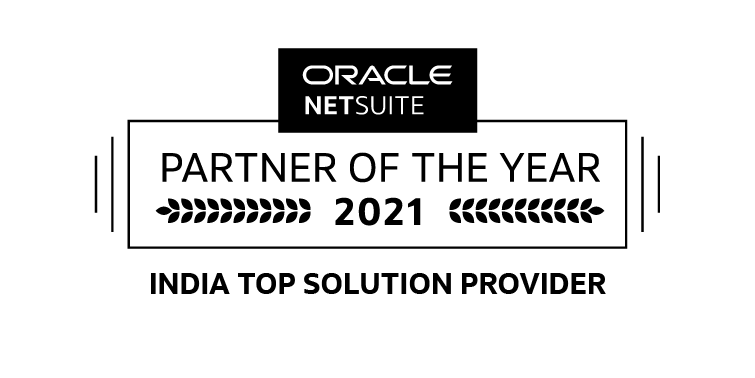Table of Contents
- 1 What is an MCP Server in Retail?
- 2 Ready to revolutionize your retail logistics with AI and MCP?
In this blog, you will explore how MCP Server in Retail is powering a logistics company by enhancing its operational capabilities.
Retail logistics faces a persistent challenge: fragmented APIs, slow updates, and hard-to-maintain integrations. As a result, both businesses and customers often find online shopping tangled in manual processes and isolated streams of data.
Behind every order, dozens of backend systems—order management, inventory, CRM, pricing engines, logistics—operate through their own APIs or dashboards.
Stitching all these platforms together for a smart, seamless shopping experience isn’t easy.
Typically, it requires teams to write and maintain brittle “glue code” for every single service. This complexity slows innovation and increases the risk of errors.
What if there were a universal conductor—one protocol your AI agents could use to orchestrate them all?
Enter the Model Context Protocol (MCP) Server. Acting as an AI-friendly, standardized bridge, the MCP Server reimagines system orchestration by simplifying backend operations.
Its impact is already visible: in May 2025, inoday launched an AI-integrated MCP Server in retail at a logistics company, pioneering a new era in retail innovation.
What is an MCP Server in Retail?
An MCP (Model Context Protocol) Server is a universal interface layer connecting artificial intelligence (LLMs or agents) to core retail systems like order management, inventory, CRM, and logistics.
Instead of coding and maintaining dozens of custom connectors, businesses gain:
- One standardized interface (MCP) instead of dozens of disparate APIs.
- Seamless conversion (translation) of MCP requests into system-specific native API calls.
- Standardized system responses delivered to the AI in uniform format.
- Real-time streaming of updates and the ability to invoke actions.
This lets your AI focus on understanding context and generating insights, not on memorizing every API signature.
Key Benefits of MCP Server for Retail Logistics
Real-Time Order Tracking
Customers ask, “Where’s my order?”—and receive instant, accurate updates from MCP-connected order databases, ensuring a frictionless experience.

Behind the scenes, Logistics company’s MCP server routes that call to the internal order tracking database and delivers back a human-ready update—no bespoke connector needed.
Hyper-Personalized Recommendations
When a shopper browses running shoes, an AI agent might do:

The MCP server consolidates customer relationship data, analytical insights, and product information, enabling the AI to generate highly targeted promotional offers.
MCP aggregates customer data, behavioral signals, and inventory to enable AI-powered personalized offers at every step of the purchase journey
Dynamic Pricing Adjustments
An autonomous pricing bot can pull competitor rates and inventory levels, then update prices if thresholds are met:

All through a single, uniform “MCP-speak” interface.
MCP enables autonomous bots to access, analyze, and adjust prices or replenish stock instantly, driven by competitor intelligence and real-time demand.
Fraud Detection & Predictive Logistics:
AI agents, powered by MCP’s unified data context, proactively flag fraudulent transactions and reroute shipments based on live external feeds like weather and traffic.
Why Early Adoption of MCP Server Matters
Retailers and logistics providers that deploy MCP servers early can:
- Enhance product data visibility across AI assistants, boosting discoverability and purchase intent.
- Minimize missed conversion opportunities due to out-of-stock or outdated info in external AI channels.
- Establish a future-proof foundation as generative AI and autonomous shopping agents reshape retail behavior.
Implementation & Success Story
India’s first AI-integrated logistics company, launching MCP in May 2025, sets a national precedent. Their adoption enabled:
- Automation of inventory reordering without manual intervention
- Proactive fraud, delay, and logistics remediation
- Faster, AI-driven omnichannel marketing campaigns Businesses seeking competitive advantage are urged to consult with Inoday’s technical experts to explore project feasibility and ROI.
MCP Server in Retail: Pioneering the E-commerce Frontier
- Autonomous Inventory Reorders: LLMs are useful for monitoring inventory levels and initiating supplier orders via MCP.
- Proactive Fraud Alerts: Generative AI analyzes transactions and flags anomalies before they escalate.
- Predictive Logistics: Agents predict delays using weather, traffic, and carrier data, then reroute shipments.
- Automated Marketing Campaigns: Real-time behavior and inventory levels feed AI-crafted email C SMS blasts.
- Hyper-Dynamic Storefronts: Product layouts and promotions shift on the fly, personalized per visitor.
Conclusion: The Future of MCP Server in Retail Solutions
The future of ecommerce isn’t just faster checkout—it’s fully autonomous, self- optimizing platforms that anticipate needs and act instantly. With an MCP server in Retail as the universal conductor, logistics companies are already composing that next-generation symphony.
Ready to revolutionize your retail logistics with AI and MCP?
Contact inoday’s experts at info@inoday.com and lead the next wave of retail innovation!
Frequently Asked Questions
What is an MCP server?
An MCP (Model Context Protocol) server is a standardized interface layer that connects AI models (like large language models) with multiple backend systems such as order management, inventory, CRM, and logistics. It acts as a universal translator and orchestrator by converting AI requests into system-specific API calls and delivering consistent responses. This enables seamless real-time integration without the need for custom connectors for every system, simplifying AI-driven workflows in retail and logistics.
How does MCP improve retail logistics?
MCP improves retail logistics by unifying fragmented backend systems into a single, AI-accessible platform. It enables real-time order tracking, autonomous inventory reordering, dynamic pricing adjustments, and proactive fraud detection through AI agents. By providing continuous data access and streamlined system orchestration, MCP reduces manual integration overhead, prevents context loss, and enhances operational efficiency and customer experience.
How can my business implement MCP?
To implement MCP, businesses typically deploy an MCP server that interfaces with their existing backend systems to expose capabilities in a standardized protocol. Integration involves configuring the MCP server to translate between AI requests and native system APIs. Adoption may include working with MCP technology vendors or partners like Inoday, conducting feasibility assessments, and piloting AI-driven workflows. Early adopters gain competitive advantage through real-time data-enabled automation and intelligence across their retail logistics operations.








